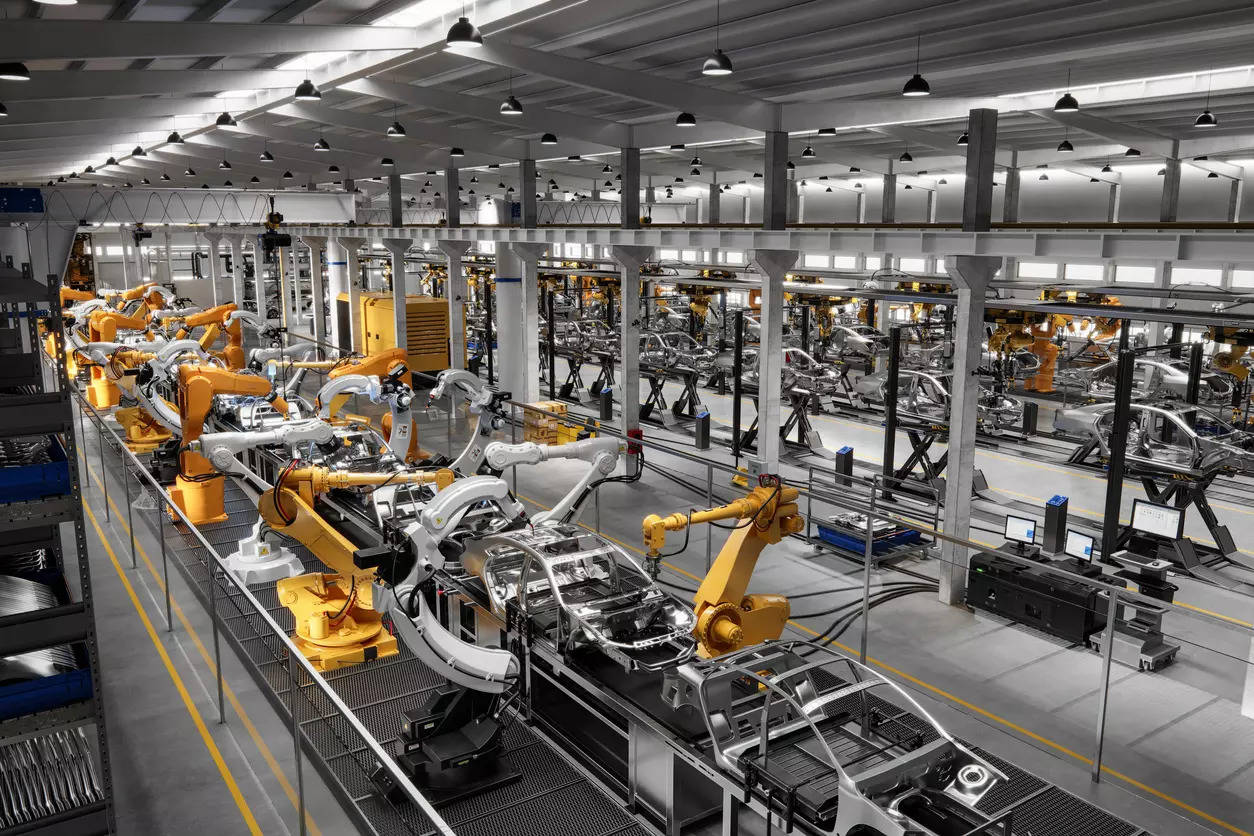
New Delhi: A strong manufacturing sector is the cornerstone of making a country an economic powerhouse. As India sets sights on becoming a USD 5 trillion economy by 2026-27, the manufacturing sector will need to play an increasingly important role towards achieving this ambitious goal. The changing global scenario, in the wake of disruptions induced by the pandemic and geopolitical tensions, has pushed countries to break the status quo presenting a momentous opportunity to India. Contributing about 17% of the GDP and employing over 27.3 million workers, manufacturing already plays a significant role in the Indian economy. The positive developments in the manufacturing sector are creating a robust pipeline for sustained economic growth with the potential to catapult India into a global manufacturing hub.
In the near future, India aims to have 25% of the economy’s output from manufacturing and achieve USD1 trillion of manufacturing exports. According to a McKinsey Global Institute report, developing globally competitive manufacturing hubs represents one of the biggest opportunities for India to spur economic growth and job creation this decade. Imperatively, the next step is to address existing challenges and facilitate a smooth transition to technology-led investments to pave the way for India to take the global center stage.
India’s ‘Techade’ in manufacturing
The potential of sustained growth of the manufacturing sector has received an impetus due to several factors, including implementation of infrastructure initiatives by the Government of India. The impact of policy changes under the ‘Make In India’ initiative and increased acceptance of the simplified tax regime amongst businesses of all sizes has provided the much desired boost to the manufacturing ecosystem in India.
However, achieving long term success will require rethinking of the manufacturing process. Companies must imagine a factory not just as a place of production, but as a living, breathing ecosystem. In this vision, technology is a trusted partner, and players must leverage India’s zeal to excel during this ‘techade’ (2020-2030). Transformation of Indian MSMEs (micro, small, and medium enterprises) is crucial for India’s future manufacturing aspiration. Approximately 90% of these MSMEs are engaged in manufacturing process and accounts for 36% of India’s total manufacturing output. While having a significant impact on manufacturing process in India, these MSMEs are at disadvantage due to low level of technology adoption. For India to emerge as a global manufacturing centre, it’s crucial for these MSMEs to embrace digitalization on a massive scale to achieve manufacturing excellence.
Availability of skilled workers is another pain-point for the manufacturing sector. With an average age of 28 years, India’s population is at a crucial juncture to leapfrog industrial production. But India’s vast talent pool base crucially demands industry orientation and skill-based training for generating a workforce that can be gainfully employed by the manufacturers. Additionally, improvement in workplace conditions, safety, benefits and talent retention strategies will be important for the next phase of growth.
Industry 4.0 in Indian manufacturing
According to Rockwell Automation’s 2023 State of Smart Manufacturing Report, Indian manufacturers are increasingly embracing ‘digital transformation’ to make manufacturing more productive and efficient. Indian companies are investing 35% of their operating budgets towards technology investment. The report suggests that dedicated shift towards automation is imperative for manufacturers to increase productivity, mitigate risks, open new opportunities, remain competitive, and achieve sustainability.
A McKinsey report identifies 11 manufacturing value chains that can generate about USD 320 billion more in gross value added (GVA) for India by 2027. Large-scale shifts in vision and investments are necessary to help these value chains find global competitiveness in productivity and output. Indian manufacturers are increasingly deploying robots to perform repetitive tasks, freeing up human workers for more complex and creative roles. To fully embrace Industry 4.0, they need to address challenges in skill development, infrastructure, and cybersecurity.
Smart manufacturing through smart machines and systems is a step towards in the desired direction. Smart systems can substantially reduce programming time, while smart devices enable players to plan well with better information and insights to optimize productivity, quality, risk management, and sustainability, allowing quick and efficient resolution of problems, reducing downtime and risks to workers, assets, and reputation. Today’s smart machines translate data into insights for better decision-making, moving beyond conventional control, operation, and maintenance paradigms. Smart manufacturing enables businesses to navigate the convergence of information technology (IT) with operational technology (OT) through edge-to-enterprise analytics, machine learning, industrial internet of things (IIoT) and augmented reality (AR).
India’s journey to becoming a global manufacturing hub is both a formidable challenge and an immense opportunity. An increasingly competitive global marketplace, regulatory mandates, increasing risks, lack of skilled workers, and an unpredictable supply chain – the complex and multifaceted challenges have prompted industry leaders to embrace automation technologies that simplify production environments, unleash extraordinary innovation, improve system lifecycle management, and help mitigate cybersecurity and safety risks.
A wider adoption of smart manufacturing will be key to data-driven decision making, increasing output, and ensuring technology is recognized as a competitive differentiator. Last but not the least, to fulfil the vision of India becoming a manufacturing hub, collaboration between government, industry, and academia will be essential. As we move forward, it’s essential for all stakeholders to collectively embark on this transformative journey, cementing India’s position as a global manufacturing leader.
(Disclaimer: Dilip Sawhne is the MD of Rockwell Automation. Views are personal.)

